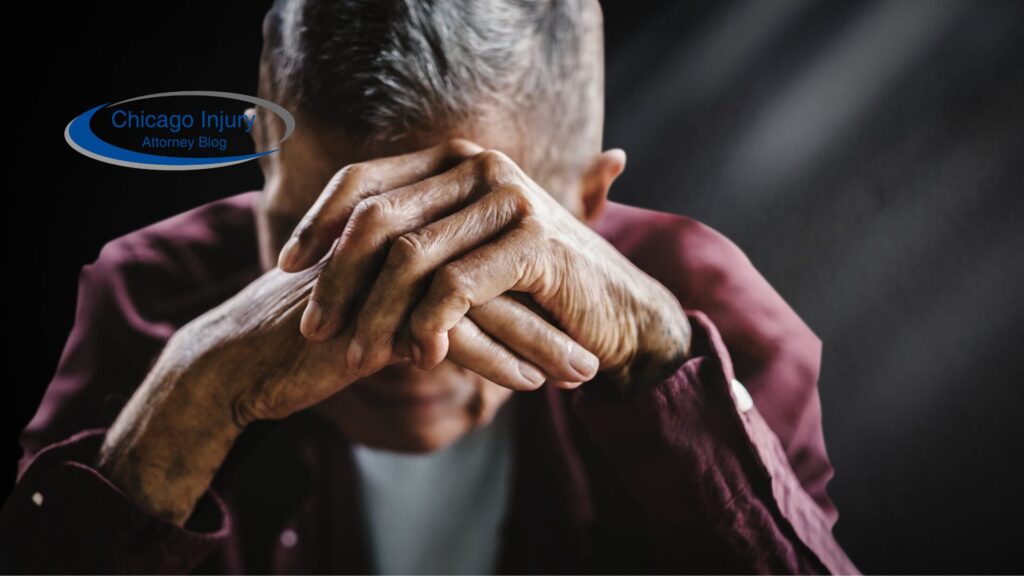Elder abuse in nursing homes is a serious issue that affects many vulnerable individuals in our society.
This article explores the legal protections and rights in place to safeguard the well-being of elderly residents in Illinois. Understanding the laws and regulations surrounding elder abuse, including state-specific protections, helps recognize and report any signs of mistreatment.
We discuss investigative procedures, support services for victims, ways to prevent elder abuse through educational programs, and creating safe environments. Join us in delving into this crucial topic and learning how we can collaborate to protect our elderly loved ones.
Introduction to Elder Abuse in Nursing Homes
Elder abuse in nursing homes is a serious issue that encompasses various forms of mistreatment and neglect towards elderly residents within care facilities. It involves violations of residents’ rights, including the right to proper medical care and protection against abuse.
Common types of abuse in nursing homes include physical abuse, emotional abuse, financial exploitation, and neglect.
Physical abuse can manifest as hitting, pushing, or restraining residents, leading to physical injuries and emotional distress.
Emotional abuse often involves intimidation, humiliation, or isolation, causing psychological harm and deteriorating mental health.
Financial exploitation, where staff members or others misuse residents’ finances or property, poses a significant threat to the financial well-being of the elderly.
Legal Protections and Rights
Legal protections and rights play a crucial role in safeguarding elderly individuals residing in nursing homes from various forms of abuse, financial exploitation, and negligence. These rights are often enshrined in state regulations and federal laws such as OBRA and the Bill of Rights.
One key element that ensures the well-being of elderly residents is the appointment of a power of attorney. This legal figure has the authority to act on behalf of the elderly individual, making decisions and ensuring their rights are upheld.
Government oversight agencies like the Centers for Medicare and Medicaid Services (CMS) monitor nursing homes to ensure compliance with regulations. These regulatory bodies conduct inspections, investigate complaints, and enforce compliance with standards.
In cases of professional negligence or abuse, legal remedies such as civil lawsuits can be pursued to hold responsible parties accountable. Legal assistance and advocacy groups specializing in elder rights can provide guidance and support in navigating these complex legal processes.
Understanding Laws and Regulations
In Georgia, the legal framework for addressing elder abuse in nursing homes is delineated in the Official Code of Georgia Annotated, emphasizing the responsibilities of the Department of Community Health in enforcing regulations such as OBRA and the Bill of Rights.
Under Georgia’s laws, nursing homes are mandated to adhere to strict guidelines and standards to ensure the safety and well-being of elderly residents. The Georgia Department of Community Health (DCH) plays a crucial role in monitoring and regulating these facilities, overseeing compliance with state and federal laws. Georgia law give the power tos the Division of Aging Services to investigate complaints of elder abuse and neglect in nursing homes, holding violators accountable through civil or criminal penalties.
State-Specific Protections in Illinois
In Illinois, protections for elderly residents in nursing homes are overseen by agencies such as Adult Protective Services and the Committee on Nursing Home Regulation, ensuring compliance with Healthcare Facility Regulation standards and safeguarding individuals like Paul from abuse and neglect.
These agencies play a crucial role in investigating reports of elder abuse, monitoring facility conditions, and enforcing necessary legal actions to uphold the rights of vulnerable adults. Illinois has established a network of community support services, including helplines, counseling, and legal assistance, to provide holistic care and protection for seniors in nursing homes. State-specific regulations, such as the Illinois Nursing Home Care Act, outline strict guidelines for facilities’ operations, staffing ratios, and quality of care, reinforcing the commitment to promoting a safe and dignified living environment for elderly residents.
Recognizing and Reporting Abuse
Recognizing and reporting abuse in nursing homes is crucial to ensuring the well-being of residents and holding facilities accountable for maintaining proper standards of care.
Common signs of abuse in nursing homes include unexplained injuries, sudden changes in behavior, neglect of basic needs, emotional withdrawal, and financial exploitation.
Timely reporting of these signs to the proper authorities, such as social services or the ombudsman, is essential to prevent further harm and ensure the safety of residents.
Attorneys specializing in elder law play a vital role in advocating for residents’ rights and holding negligent facilities accountable through legal action.
By working together, stakeholders, including family members, staff, and advocates, can create a safer environment for those living in nursing homes.
Signs of Abuse
Signs of abuse in nursing homes can manifest through changes in residents’ health, disruptions in care services, unexplained injuries, or reports of mistreatment. Recognizing these indicators is crucial in identifying potential violations and ensuring residents’ well-being.
Physical signs of abuse may include unexplained bruises, wounds, or fractures, particularly if they occur frequently or in multiple locations on the body. Behavioral changes such as withdrawal, anxiety, or sudden aggression can also be red flags. Neglect can be indicated by poor personal hygiene, untreated medical conditions, or malnutrition. In some cases, residents may be hesitant to speak openly about their experiences due to fear of retaliation or lack of communication abilities.
Steps to Report Abuse
Reporting abuse in nursing homes involves contacting relevant authorities such as the Department of Community Health, documenting incidents, seeking legal assistance, and ensuring that the facilities are held accountable for their actions. Prompt reporting is essential to addressing abuse effectively.
Documentation plays a crucial role in substantiating claims of elder abuse. Recording any suspicious incidents, injuries, or changes in behavior can provide vital evidence when reporting abuse. The regulatory bodies, like the Nursing Home Abuse Center, play a significant role in investigating and ensuring compliance with safety regulations.
Seeking legal assistance is advised to navigate the complexities of the legal system and protect the rights of the elderly. Legal professionals specializing in elder law can provide guidance and support throughout the reporting and potential legal proceedings, ensuring justice is served.
Investigating Elder Abuse Cases
Investigating elder abuse cases requires adherence to specific legal procedures, thorough evidence collection, and collaboration with law enforcement agencies to build strong cases against perpetrators. The investigative process is crucial in securing justice for victims and preventing future instances of abuse.
Once a report of elder abuse is received, the legal protocols must be meticulously followed to ensure a fair and thorough investigation. This typically involves interviewing witnesses, examining medical records, and gathering physical evidence to substantiate the claims. Law enforcement plays a key role in obtaining search warrants if needed and in conducting forensic analysis of any potential crime scenes. Cooperation with prosecutors is vital to ensure that the gathered evidence holds up in court and leads to successful convictions when cases go to trial.
Legal Procedures
Legal procedures involved in investigating elder abuse cases encompass adherence to established laws, regulations, and ethical standards, with attorneys playing a pivotal role in representing victims, advocating for their rights, and holding accountable those responsible for violations.
Attorneys specializing in elder abuse cases navigate a complex legal landscape to ensure that justice is served for the vulnerable elderly population. These legal professionals meticulously review relevant statutes, such as elder abuse laws and regulations, to build compelling cases against perpetrators. Attorneys must maintain strict regulatory compliance throughout the investigative process to secure admissible evidence in court. They collaborate with law enforcement agencies, social services, and medical professionals to gather crucial information and testimony to support their clients’ claims.
Evidence Collection
Collecting evidence in elder abuse cases requires meticulous attention to detail, adherence to established standards, and collaboration with experts to ensure the validity and admissibility of evidence. Proper evidence collection is essential for seeking compensation, enforcing regulatory rules, and holding perpetrators accountable.
One of the crucial aspects of evidence collection in elder abuse investigations is to document all findings accurately and thoroughly. This may involve taking detailed photographs, preserving physical evidence, and conducting interviews with relevant parties. Maintaining a chain of custody for all collected evidence is paramount to ensure its integrity and authenticity.
It is essential to follow specific protocols and guidelines set by regulatory bodies and legal standards while collecting evidence. Any deviations from these established procedures could potentially lead to the evidence being inadmissible in court, jeopardizing the case against the perpetrator.
Support for Victims
Victims of elder abuse in nursing homes often require comprehensive support services, including counseling to address trauma, assistance in navigating legal processes, and access to advocacy organizations that champion their rights and well-being. Providing holistic support is essential in aiding victims’ recovery and ensuring their voices are heard.
Support services for victims of elder abuse go beyond just addressing immediate concerns. Various counseling options, such as individual therapy or group sessions, are tailored to help victims cope with the emotional toll of the abuse.
Assistance programs offer practical help in dealing with financial matters, housing transitions, and other aspects affected by the abuse. These programs provide crucial guidance and resources for victims to reclaim their independence and rebuild their lives.
Advocacy organizations play a vital role in raising awareness about elder abuse, fighting for policy changes, and standing up for victims’ rights. These organizations offer vital support in navigating legal channels, ensuring justice is served, and advocating for systemic reforms to prevent future cases of abuse.
Counseling Services
Counseling services for victims of elder abuse focus on addressing the emotional and psychological impact of mistreatment, financial exploitation, or neglect. These services aim to provide therapeutic support, guidance in decision-making, and a safe space for victims to share their experiences and seek assistance.
Therapeutic interventions offered by counselors may include individual or group therapy sessions designed to help elderly individuals process and cope with the trauma they have experienced. Through various techniques such as cognitive-behavioral therapy and trauma-focused approaches, counselors assist victims in rebuilding their sense of self-worth and resilience.
Plus emotional care, counseling services also play a crucial role in give the power toing elderly victims of abuse. By fostering a sense of agency and self-advocacy, counselors help victims regain control over their lives and make informed decisions regarding their safety and well-being.
Advocacy Organizations
Advocacy organizations dedicated to combating elder abuse play a vital role in safeguarding the rights and well-being of residents in nursing homes.
These organizations serve as powerful voices that raise awareness about the prevalence of elder abuse, educate the public on warning signs, and provide support to victims and their families.
Their advocacy efforts extend beyond mere awareness-building, as they actively lobby for legislative changes and funding allocations to address systemic issues within long-term care facilities.
Preventing Elder Abuse
Preventing elder abuse in nursing homes requires a multi-faceted approach that includes educational programs to raise awareness about abuse signs and reporting procedures, as well as initiatives aimed at creating safe and supportive environments for elderly residents. Proactive prevention strategies are essential in fostering a culture of respect and protection for vulnerable individuals.
One crucial aspect of combatting elder abuse is the implementation of environmental safety protocols within nursing homes. These protocols involve ensuring that the physical premises are secure, well-maintained, and equipped with necessary safety features to prevent accidents or intentional harm.
Promoting community engagement plays a vital role in safeguarding the well-being of seniors by establishing strong social connections and support networks that can promptly intervene in case of any suspicious activities or concerns. By integrating these preventive measures, the overall safety and quality of care for elderly residents can be significantly enhanced.
Educational Programs
Educational programs on elder abuse cover various forms of mistreatment, legal provisions for victim assistance, notable abuse cases, and health implications associated with neglect or exploitation. These programs aim to give the power to communities with knowledge to recognize, report, and prevent elder abuse effectively.
One of the key aspects of these educational initiatives is shedding light on the different facets of elder abuse, such as physical, emotional, financial, and sexual abuse, as well as neglect and abandonment. By providing insights into the legal frameworks offering protection to victims, these programs equip individuals with the necessary tools to seek legal recourse and support. Case studies are often integrated into the curriculum to illustrate real-life scenarios and highlight the importance of early intervention and support mechanisms.
Understanding the profound health impacts resulting from elder abuse, including increased risk of chronic illnesses, depression, anxiety, and mortality, underscores the urgency of addressing this issue through education. Through awareness campaigns, workshops, and training sessions, communities can work towards building a safety net for vulnerable older adults and fostering a culture of respect and care.
Creating Safe Environments
Creating safe environments in nursing homes involves upholding residents’ rights, enforcing regulatory rules, and preventing violations that compromise the well-being of vulnerable individuals.
One key aspect of ensuring resident safety in nursing homes is to give the power to individuals with the knowledge of their rights within the care facility. This can be achieved through education programs, clear communication, and easy access to information regarding resident rights.
Regulatory compliance plays a crucial role in maintaining a safe environment by setting guidelines for staffing ratios, cleanliness standards, and quality of care. Regular audits and inspections help enforce these regulations, holding facilities accountable. By proactively addressing potential issues and implementing proper training for staff, nursing homes can prevent violations and protect the well-being of their residents.
Frequently Asked Questions
What is elder abuse in nursing homes?
Elder abuse in nursing homes refers to any form of harm or neglect inflicted upon an elderly person who resides in a nursing home facility. This can include physical abuse, emotional abuse, financial exploitation, neglect, and sexual abuse.
What legal protections are in place for nursing home residents?
Nursing home residents are protected by federal and state laws, including the Nursing Home Reform Act, which establishes certain standards for resident care and rights. Additionally, each state has its own laws and regulations that govern nursing homes.
What are the rights of nursing home residents?
Nursing home residents have the right to be treated with dignity and respect, to be free from abuse and neglect, to make decisions about their medical care, to have their personal belongings and money protected, and to have access to their medical records, among others.
What should I do if I suspect elder abuse in a nursing home?
If you suspect that a loved one is being abused or neglected in a nursing home, it is important to take action. You can file a complaint with the nursing home facility, report the abuse to state authorities, or seek legal assistance from a personal injury attorney.
Can I sue a nursing home for elder abuse?
Yes, you can file a civil lawsuit against a nursing home if your loved one has been abused or neglected. This can result in financial compensation for the victim and can also hold the nursing home accountable for their actions.
How can a personal injury attorney help with elder abuse in nursing homes?
A personal injury attorney can provide legal representation for victims of elder abuse in nursing homes. They can help gather evidence, file a lawsuit, negotiate with insurance companies, and fight for fair compensation for the victim and their family.





